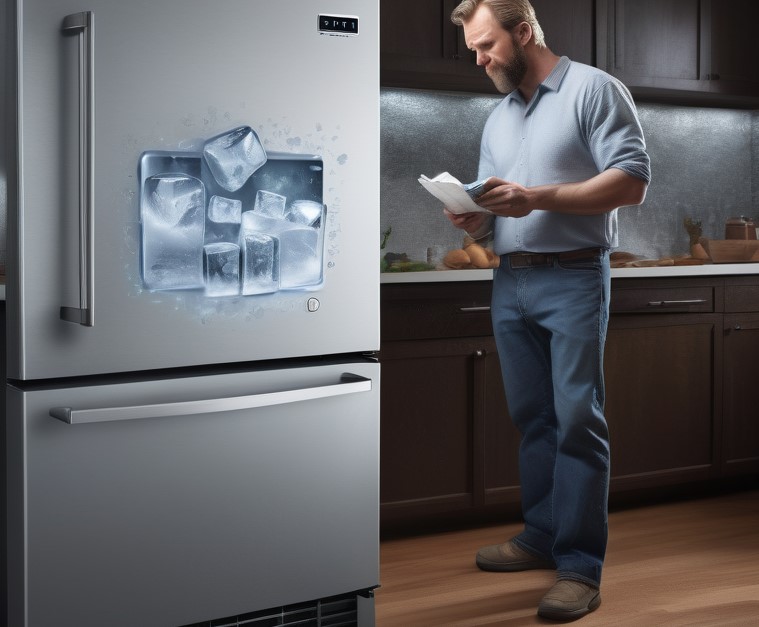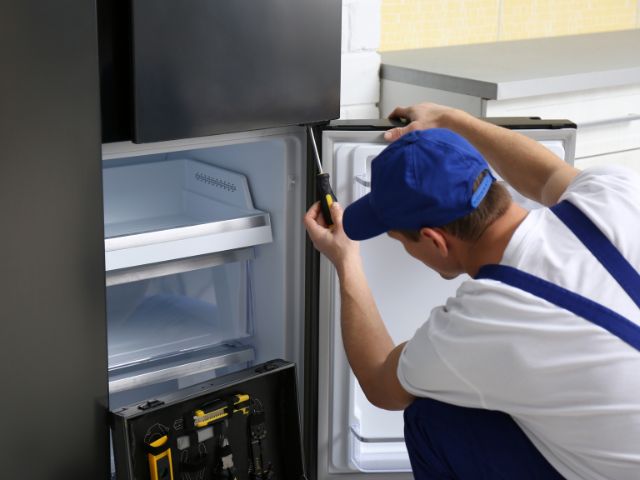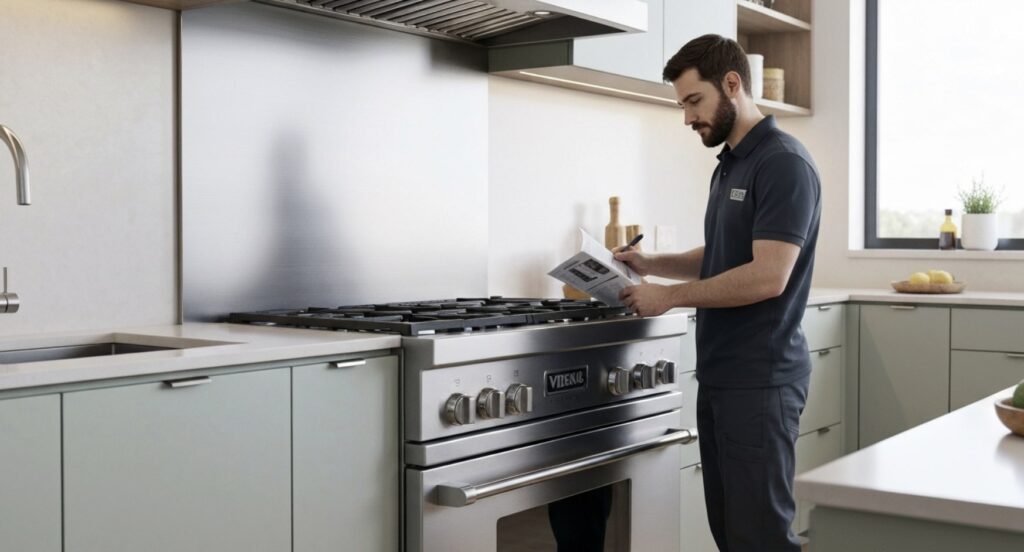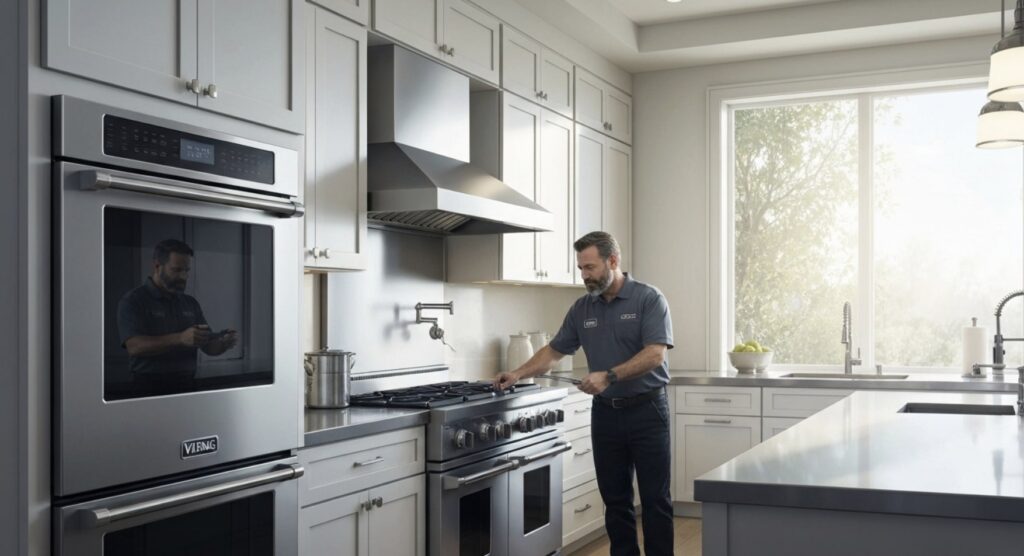When dealing with Viking ice makers, it’s crucial to understand common issues that may arise. These appliances are essential for optimal ice production, but various components can lead to malfunctions. Being aware of troubleshooting tips and maintenance practices is key to ensuring your Viking ice maker operates smoothly. In this guide, we will delve into identifying and resolving common issues with Viking ice makers, providing you with the necessary knowledge to keep your appliance functioning at its best.
Identifying Common Viking Ice Maker Problems
Viking ice makers may encounter issues like inadequate ice production or unusual noises. Understanding these common problems is crucial to effective troubleshooting.
Why Your Viking Ice Maker Isn’t Producing Ice
Your Viking ice maker may not produce ice due to several reasons such as a faulty water inlet valve, a clogged water filter, or a frozen water line. Additionally, inadequate water supply, incorrect temperature settings, or a malfunctioning ice maker assembly can also be culprits. Ensuring proper water flow, optimal temperature, and regular maintenance can help resolve these issues and facilitate ice production efficiently. If your Viking ice maker still doesn’t produce ice due to a lack of cool air, it might be time to seek professional appliance repair assistance.
Strange Noises Coming from the Ice Maker
If your Viking ice maker is emitting strange noises, it could be a sign of underlying issues. Unusual sounds like clunking, humming, or grinding may indicate a problem with the motor or other components. These noises can disrupt the ice-making process and signal potential malfunctions. Identifying the source of the sound is crucial in troubleshooting the problem effectively. It is advisable to consult a professional appliance repair service to diagnose and resolve these auditory anomalies promptly.
Troubleshooting Tips for Viking Ice Makers
Now you know the common issues with Viking ice makers, let’s discuss some troubleshooting tips to address these problems effectively.
Resetting Your Viking Ice Maker
To reset your Viking ice maker, locate the power switch on the appliance and turn it off. Wait for about 5 minutes before turning the power back on. This action can often resolve minor technical issues by rebooting the system. If the problem persists, consult the user manual for specific reset instructions tailored to your model. Resetting the ice maker can help troubleshoot common issues and restore optimal ice production.
Checking and Fixing Water Supply Issues
To ensure optimal ice production, inspect the water supply for any blockages or leaks. Check the water inlet valve for proper functioning and clear any clogs in the supply line. Test the water pressure to guarantee sufficient flow for ice-making. If needed, clean the water filter to prevent impurities from affecting ice quality. Addressing water supply issues promptly can significantly enhance the performance of your Viking ice maker.
Detailed Solutions for Specific Ice Maker Issues
For more detailed solutions to specific ice maker issues, let’s find out more about the particular problem you are facing.
Fixing a Frozen Water Line
To fix a frozen water line in your Viking ice maker, start by unplugging the appliance. Gently thaw the line using a hair dryer on a low setting or warm towels. Avoid using any sharp objects to prevent damage. Once the line is clear, plug the ice maker back in and wait for it to resume normal operation. This simple step can restore proper water flow and ensure optimal ice production without the need for professional assistance.
Replacing a Faulty Water Inlet Valve
To replace a faulty water inlet valve in your Viking ice maker, first, disconnect the power and water supply. Locate the valve, typically behind the refrigerator. Use a wrench to remove the connections carefully. Install the new valve following the reverse process. Ensure the connections are tight to prevent leaks. Once done, reconnect the power and water supply, then test the ice maker. If the issue persists, consider seeking professional help for further diagnosis.
Step-by-Step Guide to Diagnose Ice Maker Assembly Problems
Here are a few steps to diagnose common issues with Viking ice maker assembly:
Inspecting the Ice Maker Assembly for Damage
Inspecting the ice maker assembly for damage involves a thorough examination of various components for visible damage that may impact ice production. Look for any signs of wear and tear, such as cracks or leaks in the ice bin, faulty door seals, or issues with the electrical connections. Ensure all parts are functioning correctly to maintain optimal ice production. Regular maintenance and proper temperature control are essential to prevent future problems. Regularly cleaning the assembly with mild soap and inspecting for any abnormalities can help prolong the life of your Viking ice maker.
Testing the Ice Maker’s Motor and Thermostat
To test the ice maker’s motor and thermostat, you can use a multimeter to check for continuity and proper voltage. Start by disconnecting the power supply and locating these components within the ice maker assembly. Test the motor by measuring resistance across its terminals, ensuring it falls within the specified range. For the thermostat, check if it opens and closes correctly at the proper temperature. Any deviations from the expected values may indicate issues with these crucial components affecting your Viking ice maker’s performance.
Maintenance Tips to Prevent Future Ice Maker Problems
Regular maintenance is crucial to avoid common issues with your Viking ice maker. Ensure optimal ice production by regularly cleaning the appliance with mild soap and water. Changing the water filter as recommended maintains ice quality. Keep the ice bin clean and inspect various components for visible damage. Proper temperature settings and checking condenser coils for debris help in preventing future problems. Implementing these maintenance tips can extend the lifespan of your ice maker and minimize the need for viking appliance repair los angeles.
Signs That Indicate You Need an Expert
While some ice maker issues can be resolved with simple troubleshooting and maintenance, there are certain signs that indicate the need for an expert like us here at Viking Appliance Repair Pros. Here are some signs that you may need to seek professional help for your Viking ice maker:
- Persistent issues: If you’re facing ongoing problems with your ice maker despite trying the recommended troubleshooting tips, it may be time to call in an expert. They have the knowledge and experience to diagnose and fix complex issues.
- Visible damage: If you notice any visible damage to the ice maker assembly or its components, it’s best to have a professional assess the situation. They can determine if repairs are possible or if replacement parts are needed.
- Electrical issues: Ice makers involve electrical components, and attempting to fix electrical issues without the necessary expertise can be dangerous. If you suspect any electrical problems, such as faulty wiring or power supply issues, it’s crucial to call an expert to avoid the risk of electrical shock.
By recognizing these signs and seeking professional help when needed, you can ensure that your Viking ice maker is repaired correctly and efficiently, minimizing any inconvenience and ensuring optimal ice production.
Conclusion
In conclusion, understanding common issues with your Viking ice maker and how to troubleshoot them can save you time and frustration. By diagnosing problems like ice production failures or unusual noises, you can address them promptly. Remember to perform regular maintenance tasks like cleaning and changing water filters to prevent future problems. If complex issues arise, seek professional help from a qualified technician. For more detailed solutions and maintenance tips, check our comprehensive guide: Maintaining Optimal Temperature: Fixing Viking Refrigerator Woes.
Frequently Asked Questions
What to Do If Your Viking Ice Maker Stops Working Suddenly?
If your Viking ice maker stops working suddenly, try these troubleshooting tips:
- Check the power supply and ensure the ice maker is plugged in.
- Thaw any frozen water lines using a hairdryer.
- Clean the ice maker and inspect for any visible damage.
- Contact a professional if the issue persists.
Can I Repair My Viking Ice Maker Without Professional Help?
While some simple issues can be resolved through troubleshooting and regular maintenance, it’s best to seek professional help for complex problems with your Viking ice maker. They have the expertise to diagnose and fix the issues effectively and safely.
How Often Should I Clean My Viking Ice Maker?
It’s recommended to clean your Viking ice maker every six months or more frequently if you notice a drop in performance or ice quality. Use mild soap and warm water to clean the interior surfaces, and rinse thoroughly before allowing the ice maker to air dry.
Why Is My Ice Maker Leaking Water?
A leaking ice maker can be caused by various issues, such as a faulty water supply line, a clogged drain line, or a faulty door seal. It’s best to consult a professional for appliance repair to diagnose and fix the problem.
How to Maximize the Lifespan of Your Viking Ice Maker
To maximize the lifespan of your Viking ice maker, follow these tips:
- Perform regular maintenance, including cleaning and inspecting the ice maker.
- Keep the condenser coils clean and free from dust and debris.
- Check the ice maker assembly for any visible damage and replace any worn-out or broken parts promptly.







